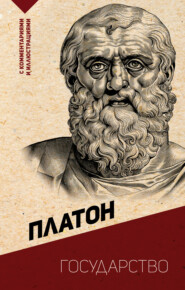По всем вопросам обращайтесь на: info@litportal.ru
(©) 2003-2025.
✖
The Republic
Настройки чтения
Размер шрифта
Высота строк
Поля
Neither ought our guardians to be given to laughter. For a fit of laughter which has been indulged to excess almost always produces a violent reaction.
So I believe.
Then persons of worth, even if only mortal men, must not be represented as overcome by laughter, and still less must such a representation of the gods be allowed.
Still less of the gods, as you say, he replied.
Then we shall not suffer such an expression to be used about the gods as that of Homer when he describes how
'Inextinguishable laughter arose among the blessed gods, when they saw Hephaestus bustling about the mansion.'
On your views, we must not admit them.
On my views, if you like to father them on me; that we must not admit them is certain.
Again, truth should be highly valued; if, as we were saying, a lie is useless to the gods, and useful only as a medicine to men, then the use of such medicines should be restricted to physicians; private individuals have no business with them.
Clearly not, he said.
Then if any one at all is to have the privilege of lying, the rulers of the State should be the persons; and they, in their dealings either with enemies or with their own citizens, may be allowed to lie for the public good. But nobody else should meddle with anything of the kind; and although the rulers have this privilege, for a private man to lie to them in return is to be deemed a more heinous fault than for the patient or the pupil of a gymnasium not to speak the truth about his own bodily illnesses to the physician or to the trainer, or for a sailor not to tell the captain what is happening about the ship and the rest of the crew, and how things are going with himself or his fellow sailors.
Most true, he said.
If, then, the ruler catches anybody beside himself lying in the State,
'Any of the craftsmen, whether he be priest or physician or carpenter,'
he will punish him for introducing a practice which is equally subversive and destructive of ship or State.
Most certainly, he said, if our idea of the State is ever carried out.
In the next place our youth must be temperate?
Certainly.
Are not the chief elements of temperance, speaking generally, obedience to commanders and self-control in sensual pleasures?
True.
Then we shall approve such language as that of Diomede in Homer,
'Friend, sit still and obey my word,'
and the verses which follow,
'The Greeks marched breathing prowess, …in silent awe of their leaders,'
and other sentiments of the same kind.
We shall.
What of this line,
'O heavy with wine, who hast the eyes of a dog and the heart of a stag,'
and of the words which follow? Would you say that these, or any similar impertinences which private individuals are supposed to address to their rulers, whether in verse or prose, are well or ill spoken?
They are ill spoken.
They may very possibly afford some amusement, but they do not conduce to temperance. And therefore they are likely to do harm to our young men – you would agree with me there?
Yes.
And then, again, to make the wisest of men say that nothing in his opinion is more glorious than
'When the tables are full of bread and meat, and the cup-bearer carries round wine which he draws from the bowl and pours into the cups,'
is it fit or conducive to temperance for a young man to hear such words? Or the verse
'The saddest of fates is to die and meet destiny from hunger?'
What would you say again to the tale of Zeus, who, while other gods and men were asleep and he the only person awake, lay devising plans, but forgot them all in a moment through his lust, and was so completely overcome at the sight of Here that he would not even go into the hut, but wanted to lie with her on the ground, declaring that he had never been in such a state of rapture before, even when they first met one another
'Without the knowledge of their parents;'
or that other tale of how Hephaestus, because of similar goings on, cast a chain around Ares and Aphrodite?
Indeed, he said, I am strongly of opinion that they ought not to hear that sort of thing.
But any deeds of endurance which are done or told by famous men, these they ought to see and hear; as, for example, what is said in the verses,
'He smote his breast, and thus reproached his heart, Endure, my heart; far worse hast thou endured!'
Certainly, he said.
In the next place, we must not let them be receivers of gifts or lovers of money.
Certainly not.
Neither must we sing to them of
'Gifts persuading gods, and persuading reverend kings.'
Neither is Phoenix, the tutor of Achilles, to be approved or deemed to have given his pupil good counsel when he told him that he should take the gifts of the Greeks and assist them; but that without a gift he should not lay aside his anger. Neither will we believe or acknowledge Achilles himself to have been such a lover of money that he took Agamemnon's gifts, or that when he had received payment he restored the dead body of Hector, but that without payment he was unwilling to do so.
Undoubtedly, he said, these are not sentiments which can be approved.
Loving Homer as I do, I hardly like to say that in attributing these feelings to Achilles, or in believing that they are truly attributed to him, he is guilty of downright impiety. As little can I believe the narrative of his insolence to Apollo, where he says,

















